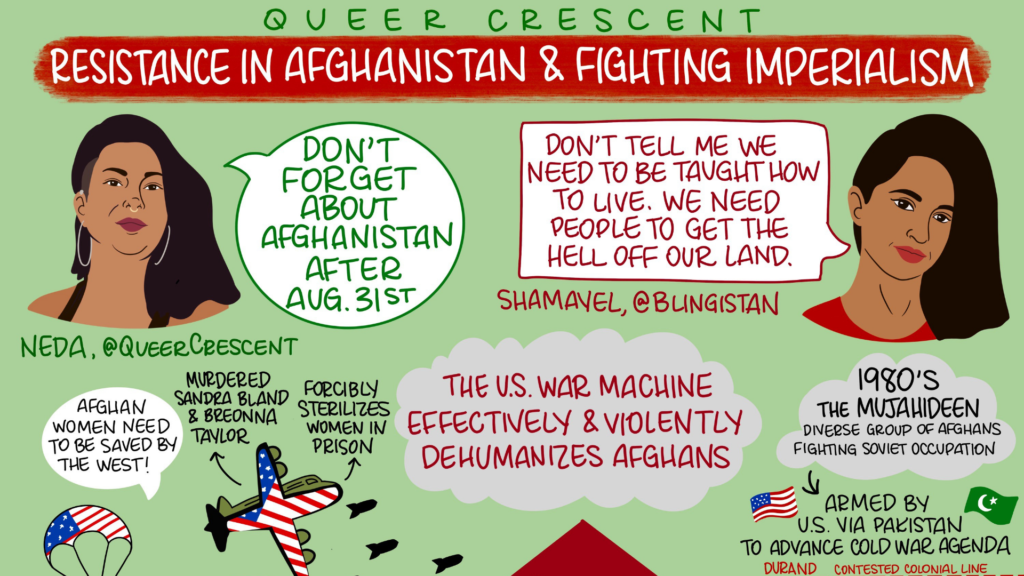Today’s news cycle runs the risk of elevating the self-serving, jingoistic apologetics for the U.S. Global War on Terror. To help counter that narrative, we’re amplifying the voice of an Afghan LGBTQ person living in the U.S. Their perspective is part of the antidote our country needs to reverse course and adopt a pro-peace national agenda. – Progressive Hub
As the 20-year anniversary of the so-called “War on Terror” (WoT) approached, I was filled with dread, anger, and immense grief. With the Taliban seizure of Kabul on August 15, and the events and turmoil in Afghanistan that followed, those feelings have only intensified. Alongside this grief, I also hold pride and solidarity with the continued resistance from Afghanistan and all other peoples colonized by the United States — and rage at the imperialist violence that continued for decades amidst what felt like so much silence.
A lot happened after 9/11, but one salient impact on my life was becoming a spokesperson for my people at the tender age of 11 years old.
Representing Afghans felt like my one opportunity to humanize and clarify the persistent misinformation that constantly confronted me through ignorant questions, stereotypes, and discrimination.
As an 11-year-old, I knew enough to feel resentment that the American public didn’t know anything about our people, thought we were backwards people that needed saving, or all terrorists. Then and still now, I feel the burden of having to demonstrate that my ancestral homeland deserves to exist, and that my people are human and multi-faceted, with a rich history and resistance, and deserve to have the opportunity to thrive. This is just one of the many ways we have had to bear the weight of structural Islamophobia.
I have come to realize that this xenophobic violence is an essential insurance for the U.S.military project. The masses in the U.S. have known so little about what is happening in Afghanistan — the violence inflicted during the U.S. occupation, and the history of intervention that resourced corrupt, violent leaders and put them in positions of power. The fabricated facade and one-dimensional story that has been used to justify this colonial project has thrived, at the expense of so many lives.
Recent Posts
“Arrest Now, Ask Questions Later”: Why Did L.A. ICE Agents Arrest and Jail U.S. Citizen Andrea Velez?
July 3, 2025
Take Action Now “They didn’t have vests that said ICE or anything. Their cars didn’t have license plates. … Just because of the color of our…
Trump’s Big, Beautiful Bill Is Naked Class War
July 3, 2025
Take Action Now Trump’s “Big, Beautiful Bill” trades tax cuts on millionaires for the dissolution of society.By Hamilton Nolan, In These Times…
Mayor Mamdani’s First Day, A Zero Hour Conversation With Richard Wolff
July 2, 2025
Take Action Now If elected, what would Mayor Mamdani do on his first day in City Hall? How would a democratic socialist govern as a big-city mayor?……
The U.S. Is Funding A Bloodbath At Gaza Aid Centers
July 2, 2025
Take Action Now The admin just gave $30M to GHF, the organization at the center of charges that Israel is weaponizing assistance and shooting at…





